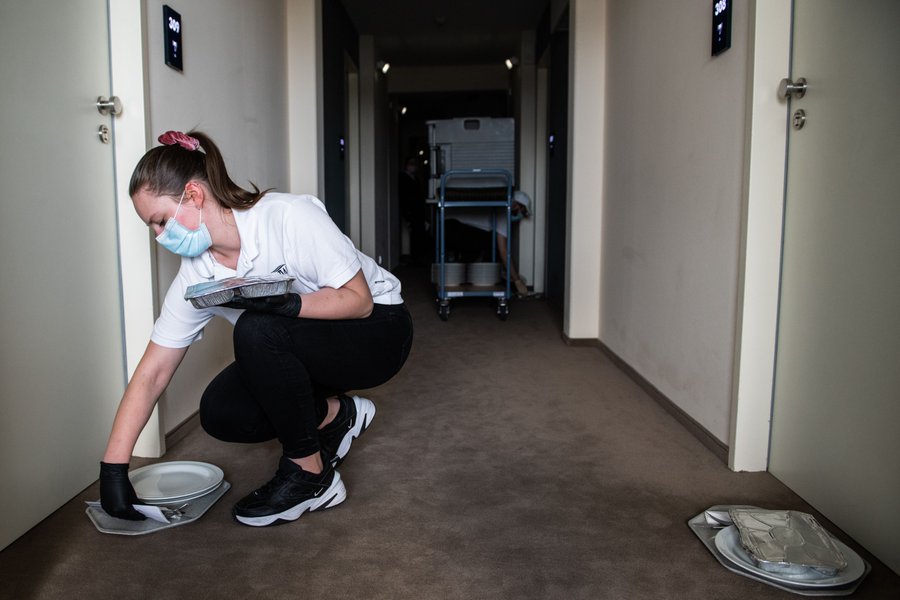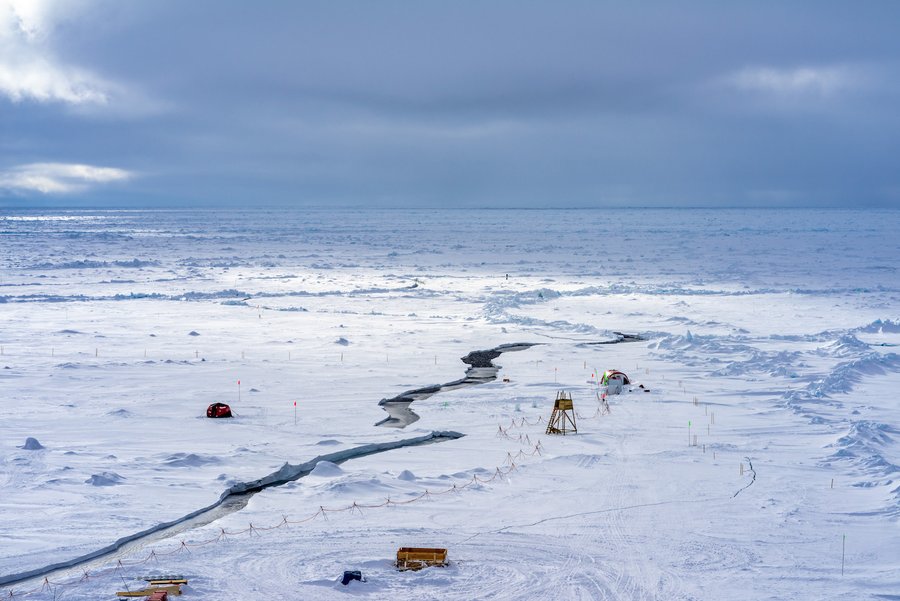Resupply Mission for the MOSAiC Expedition Shifts to Bremerhaven
The German research icebreaker Polarstern may be frozen into the ice in the high Arctic, but that has not made her immune from the knock-on effects of the COVID-19 pandemic. The complex, choreographed resupply and crew relief cycle for Polarstern has been disrupted by coronavirus-related health protocols and closures.
A crew relief air flight was scheduled for early April, departing Svalbard and landing on a temporary ice airstrip adjacent to the ship. However, this had to be called off due to coronavirus travel restrictions. The last shipborne resupply mission for Polarstern departed from Tromso in February, but with this port option also closed off due to coronavirus concerns, the logistics operation has shifted down to the port of Bremerhaven. 90 scientists and crewmembers recently underwent a quarantine period at a hotel in the German port city, readying themselves to board two research vessels that will meet the Polarstern outside of the ice.

Meal delivery for the oncoming crew in quarantine, Bremerhaven, May 2020 (MOSAiC)
According to the mission's operator - an international scientific consortium called the MOSAiC Expedition - the oncoming team started with an individual quarantine in which they remained in their rooms for one week without any physical contact. Staff delivered food to their door three times a day, and they kept in touch with each other online. The participants took two COVID-19 nasal swab tests to make sure that they did not have the virus. All tested negative, according to MOSAiC.

Instrumentation on the ice floe during preparations for departure, May 2020 (MOSAiC)

that matters most
Get the latest maritime news delivered to your inbox daily.
The new plan means that Polarstern will have to leave her station in the ice - along with a good portion of her scientific instrumentation - and transit out of the pack to a sheltered rendezvous point off Svalbard. The German research vessels RV Sonne and RV Maria S. Merian will transit up from Bremerhaven to meet her and conduct a ship-to-ship transfer. When the transfer is complete, Polarstern will return to the work site in the ice and resume her mission. There will be a gap in the data set for the period she is away, but the hiatus will give the team the chance to keep operating despite the extraordinary challenges of the COVID-19 era. The mission's conclusion is still planned for October 2020, the end of the annual freeze-thaw cycle.
“The idea of leaving the camp and floe was certainly not something we would have considered in the original rotation plan,” polar biologist and mission co-leader Allsion Fong told Nature. “But given what we’re encountering now, I think it’s an important compromise that recognizes that the human dimension to the work we do is very, very important.”
